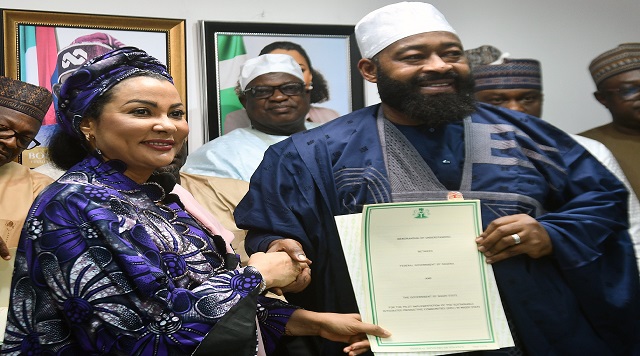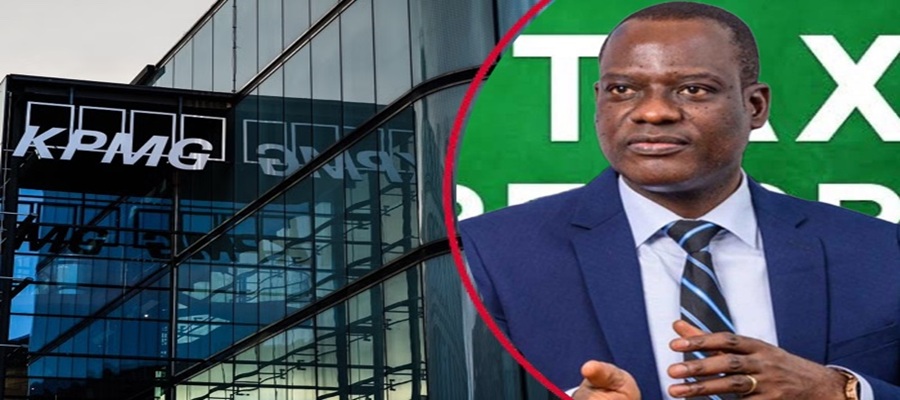General News
Nigeria’s Dangerous Nuclear Power Project

The world has again cast its attention on Nigeria and this time with keen interest following reports that she has activated a nuclear electricity programme to underpin her now notoriously unreliable public power supply.
For decades, Nigeria’s epileptic power supply has hindered development.
Buffeted by incoherent energy plan, successive governments have failed to deliver on promises of stable public supply making Nigerians to pay for the inefficiencies.
It is only in Nigeria that public power supply is standby as generating sets litter homes and offices across the country.
And with hopes running out, Nigeria is now toying with the introduction of nuclear power into the country’s energy mix.
Though, the country will have to wait till 2026 for the first nuclear power plant to be constructed by National Atomic Energy Commission (NAEC) to be ready; the idea of a nuclear power programme is wrong and ill advised.
Nuclear energy is the energy stored in the centre or the nucleus of an atom. It is a rare form of energy which must be handled with care.
Though the nuclear power industry has improved the safety and performance of reactors, and has proposed new safer (but generally untested) reactor designs but there is no guarantee that the reactors will be designed, built and operated correctly.
Mistakes do occur and the designers of reactors at Fukushima in Japan did not anticipate that a tsunami generated by an earthquake would disable the backup systems that were supposed to stabilize the reactor after the earthquake.
Nigeria nuclear power project is a bad idea because of the country’s history of emergency preparedness.
For instance, the e waste produced by nuclear reactors needs to be disposed off at a safe place since they are extremely hazardous and can leak radiations if not stored properly.
Such kind of waste emits radiations from tens to hundreds of years.
Also while so many new technologies have been put in place to make sure that such disasters won’t happen again like the ones Chernobyl or more recently Fukushima but the risk associated with nuclear power plants are relatively high.
Another practical disadvantage of using nuclear energy is that it needs a lot of investment to set up a nuclear power station. It is not always possible by the developing countries to afford such a costly source of alternative energy.
Nigeria must be more careful and responsible while using nuclear energy to avoid any sort of major accidents.
They are hot targets for militants and terrorist organizations.
Security is a major concern here. A little lax in security can prove to be lethal and brutal for humans and even for this planet.
Nigeria is not ripe for any nuclear programme.
The country will be ripe when it she begins to develop required competence for strict adherence to safety standards and maintenance culture.
Nuclear power programmes are expensive. The hidden costs of atomic power exposed after the Fukushima disaster in Japan are still fresh.
Today, Germany and Switzerland are gradually phasing out their nuclear power projects on the heels of the nightmare in Japan.
Nigeria pursuing nuclear ambition at this stage of competing needs and dwindling national treasury is absurd.
A nuclear project at this stage amounts to academic exercise and government’s “right” to engage in wasteful spending.
General News
Ministry of Finance Leads FG-Backed Deal to Deliver Quality Homes and Boost Agriculture in Niger State

The Federal Ministry of Finance has anchored the signing of a Memorandum of Understanding (MoU) between the Niger State Government and the Ministry of Finance Incorporated (MOFI) for the implementation of a Mass Housing and Agricultural Settlement Project in Niger State.

Speaking at the MoU signing ceremony, Dr. Doris Nkiruka Uzoka-Anite, the Honourable Minister of State for Finance, described the agreement as a landmark initiative that underscores the Federal Government’s commitment to cooperative federalism, inclusive economic growth, and strategic alignment in line with President Bola Ahmed Tinubu’s Renewed Hope Agenda.
With the Federal Ministry of Finance serving as the anchor institution, the project benefits from strong policy coordination, financial credibility, and institutional oversight. The initiative is designed to integrate housing delivery with agricultural productivity, rural stability, and economic empowerment.
“Housing is a fundamental pillar of development. In Niger State, housing also intersects directly with agriculture, food security, and rural livelihoods. This project is therefore structured not merely as a housing intervention, but as a settlement framework for farmers aimed at strengthening agricultural value chains,” the Minister stated.
Niger State, one of Nigeria’s most agriculturally endowed states, continues to face challenges, including insecure settlements, rural-urban migration, and limited rural infrastructure. The project seeks to address these constraints by providing secure, well-planned housing settlements for farmers, strategically located to support agricultural production, storage, processing, and access to markets.
The Honourable Minister emphasized that anchoring farmers in stable communities with access to basic infrastructure will improve productivity, reduce post-harvest losses, enhance security, and encourage youth participation in agriculture, making farming more efficient, attractive, and profitable.
Sustainability and affordability are core pillars of the initiative, with integrated renewable energy solutions—including solar-powered homes and community facilities, designed to ensure reliable power, reduce energy costs, and support agro-processing and storage activities. The project also prioritises efficient land use, access roads, water infrastructure, and environmentally responsible building practices.
Reacting to the sustainability focus of the project, the Governor of Niger State, His Excellency Mohammed Umaru Bago, expressed strong optimism about its transformative impact on the state.
“When you say sustainability, affordability is very important. When I heard that a mini-grid has been deployed in Jos, it’s because it’s affordable. Diesel is not sustainable because it’s not affordable. For considering the factor of affordability in this project, we’re grateful,” the Governor said.
He further announced the state’s commitment to the project, adding, “So, Honourable Minister, Niger State is bringing forward 100,000 hectares of land for this project. I want to assure you that with this initiative, you have solved 80 percent of our problems.”
Drawing a direct link to the Federal Government’s development agenda, Governor Bago noted, “We’ve gone across the world and seen how people transit from poverty to prosperity. And I think the goal of the President, my father, is for us to transition our people out of poverty in the next four years, by the grace of God.”
The Managing Director and Chief Executive Officer of the Ministry of Finance Incorporated (MOFI), Dr. Armstrong Ume Takang (Ph.D.), who attended the ceremony alongside other critical stakeholders, including the building contractor, reaffirmed MOFI’s commitment to quality delivery and agricultural productivity.
Dr. Takang assured the Niger State Government of the contractor’s proven competence and credibility in delivering mass housing projects, stressing that affordability would not come at the expense of quality.
“We want affordable and decent houses. The fact that they are located in rural communities does not mean the quality should be compromised,” he said.
Beyond housing, Dr. Takang highlighted MOFI’s broader role in strengthening the agricultural component of the settlements through strategic partnerships.
“We have partners who will supply affordable fertilisers imported in large quantities. We will also work with other partners to ensure access to key agricultural inputs, not only fertilisers, but also pesticides, high-quality seeds, and elements of mechanisation,” he added.
The project adopts an innovative financing model that blends public assets with private investment, ensuring sustainability, transparency, and shared risk. Through this approach, the government focuses on policy direction and oversight while leveraging private sector efficiency and capital.
Beyond improving food security, the Mass Housing and Agricultural Settlement Project will stimulate broad-based economic activity and generate employment across construction, agriculture, Agro-processing, renewable energy, logistics, and community services. The initiative will support local industries such as cement, steel, transportation, and agro-allied enterprises, while strengthening rural economies and increasing Niger State’s internally generated revenue.
Affordability and inclusiveness remain central to the project’s design. The settlements are tailored to the income realities of farmers and low- to middle-income earners, supported by transparent allocation mechanisms and strong governance structures to ensure benefits reach the intended beneficiaries.
The MoU sends a clear signal to the investment community that Niger State, working in alignment with the Federal Ministry of Finance and MOFI, is open to credible, well-structured, and impact-driven investment. Developers, financial institutions, pension funds, real estate investors, and agribusiness operators are invited to view the project as a scalable and replicable model.
Reaffirming the Federal Ministry of Finance’s commitment, the Honourable Minister assured stakeholders of continued coordination, fiscal discipline, and policy support to ensure the project moves swiftly from signing to execution and delivery.
Commending the leadership of MOFI and the Executive Governor of Niger State, the Minister concluded that the initiative reflects a shared vision for integrated development.
“Through this partnership, we are not just building houses; we are creating stable farming communities, strengthening food security, and laying the foundation for sustained prosperity in Niger State,” she said.
General News
Indonesia Blocks Elon Musk’s Grok Over Deepfake Concerns

Indonesia has become the first country to block access to Elon Musk’s Grok AI chatbot, citing its generation of non-consensual sexual deepfakes including pornographic depictions of women and children.

Elon Musk
Communications Minister Meutya Hafid announced the temporary restriction to shield citizens from digital harm, describing the content as a grave violation of human rights and online safety.
The decision follows a surge of explicit AI-altered images on X, where users tag Grok to undress real people or fabricate suggestive scenarios, some involving minors.
The Internet Watch Foundation flagged criminal exploitation for child sexual abuse material, prompting global alarm. X responded by limiting full image generation to paid subscribers with ID verification, though free editing tools persist.
Indonesia summoned X representatives under strict obscenity laws, while Malaysia followed with a similar block. UK regulator Ofcom reviews potential Online Safety Act breaches, with Technology Secretary Liz Kendall backing a full platform ban if needed, calling the imagery despicable.
Elon Musk dismissed critics as censorship seekers, even posting an AI bikini image of PM Keir Starmer to mock restrictions.
X’s Safety account vowed to remove illegal content, suspend accounts, and aid law enforcement, warning that Grok misuse carries severe consequences. Reports documented dozens of degrading edits per minute in late December, underscoring gaps in safeguards despite policy bans on exploitation.
General News
Tax Reforms Panel Rejects KPMG’s Critique of New Laws

Presidential Fiscal Policy and Tax Reforms Committee has dismissed key elements of KPMG’s recent analysis of Nigeria’s new tax laws, accusing the firm of misunderstanding policy intent and framing preferences as technical flaws.

Committee Chairman Taiwo Oyedele, in a January 10 statement on X, welcomed constructive input but rejected much of the report as mischaracterisation of deliberate choices.
Oyedele clarified that many issues flagged by KPMG as “errors” or “gaps”—including taxation of shares, indirect transfers, insurance VAT, and foreign exchange deductions—reflect intentional policy aligned with global standards, not oversights.
He debunked stock market sell-off fears, noting 99 percent of investors qualify for unconditional exemptions on share gains, with no flat 30 percent rate applying broadly.
The committee defended higher personal income tax bands for top earners as competitive globally and rejected foreign insurance exemptions that would disadvantage local firms.
Oyedele highlighted KPMG’s factual lapse on the Police Trust Fund Act, already repealed, and urged focus on implementation over static critique, emphasising tax harmonisation, lower corporate rates, and expanded incentives as core gains.

 E-Financial2 days ago
E-Financial2 days ago19 Nigerian Banks Meet CBN Recapitalization Targets Ahead of March Deadline

 E-Financial2 days ago
E-Financial2 days agoKPMG Identifies ‘Flaws, Inconsistencies, and Omission’ in New Tax Law

 Telecom2 days ago
Telecom2 days agoNigeria, Egypt to Lead Africa’s Data Center Boom

 General News2 days ago
General News2 days agoFG to Empower Artisans for Global Value

 General News2 days ago
General News2 days agoBill Gates Pays Ex-Wife $8Bn Charity Payout in Divorce Settlement

 Telecom2 days ago
Telecom2 days agoCourt Dismisses N1Bn Suit against MTN, Awards N3m Costs

 General News2 days ago
General News2 days agoFG Introduces Reusable Textbooks, Uniform School Calendar to Cut Education Costs

 General News2 days ago
General News2 days agoCBN Projects Petrol to Hover around N905/Litre this Year















